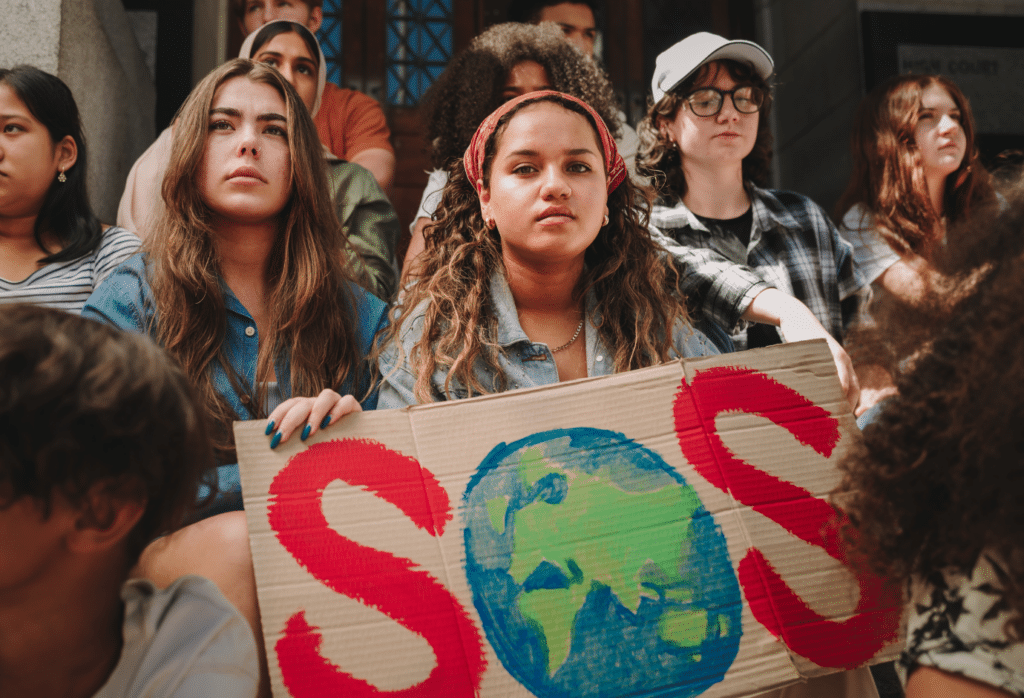A growing number of female advocates are reporting fears around their safety as they go about their work campaigning for improvements across a range of issues.
According to the latest research by girls’ rights organisation Plan International, almost one in five adolescent girls and young women activists have had safety concerns during their time campaigning and doing advocacy work.
One in 10 said they have faced threats of physical violence as a result of their work, while 15 per cent have experienced online harassment and abuse.
The international study surveyed more than a thousand girls and women aged between 15 and 24 across 26 countries including Ethiopia, Jordan, Canada, Kenya and Philippines.
A quarter of respondents said that negative views from members of their family or community were compromising their ability to campaign to the best of their abilities, while more than half reported shortage of funding as the single biggest factor affecting their campaigning.
In Australia, 35 per cent of activists said that campaigning for their basic rights had taken its toll on their mental and emotional wellbeing.
Sarah Williams, a First Nations woman and survivor advocate against sexual assault, described activism as “so taxing and draining.”
“There can be a point where it becomes too much,” she said. “I ultimately feel that it is my duty to help survivors of sexual abuse and people in need, so I will continue if my mental health can stay on a good path.”
Globally, a quarter of respondents said that their work has made their mental and emotional wellbeing suffer.
Almost a third of respondents in Australia said they feared for their physical safety, and identified that reason as a significant barrier to participating in advocacy or activism campaigning.
Respondents worked across a wide range of issues, including sexual and reproductive health rights, climate action, First Nations justice, gender equality, disability rights, equal pay and opportunity for women in sport, and ending gender-based violence — though the majority (60 per cent) identified gender equality or gender-based violence as their top concern.
In more positive news, the report found that almost all activists reported the act of campaigning has made them feel proud, empowered, and capable, and two thirds said the impact of their work has met or exceeded their expectations.
Disability activist Hannah Diviney hopes that in the near future, she will be having different conversations to the ones she is currently having “because we’ll have made some progress.”
“Hopefully … the notion of not having disabled stories and characters on screen will be a far forgotten thing of the past,” the editor-in-chief of Missing Perspectives and author of “I’ll Let Myself In” said.
“In 10 years we’re not going to see gigantic movement on girls’ rights, because we’ve got a long way to go and we just keep getting set further back and further back and further back, but I think hopefully it won’t feel like banging our heads against brick walls.”
Plan International Australia CEO Susanne Legena said that global injustices are driving girls to act and that they are “taking it into their own hands and demanding we all act, sooner, to beat the clock.”
“We have young women such as Chanel Contos and Yasmin Poole fighting back against sexism, misogyny and consent, and the formidable Anjali Sharma, who has put forward a proposal to alter Australia’s Climate Change Act and establish a duty of care in Australian law to protect young people from climate harm,” she said.
“Young women and girls in Australia are calling for change and are empowered to do something about it. They know that we simply cannot wait another 131 years – the current World Economic Forum projection – to reach gender equality.”
One of the study’s co-researchers, Yasmin Poole, said that the report had validated her own experiences of how tough and unrelenting campaigning for change is as a young woman of colour.
“In a world where gender discrimination remains widespread, young female activists are all too often ignored, or worse, harassed, or ostracised,” Poole, a Plan International ambassador, said. “Their incredible achievements often come at real personal cost. Access to funding and policy making spaces is also often in short supply, adding to the struggle to get their voices heard,” she said.
Fellow co-researcher Elizabeth Payne wants to see a widening of participation in key decision-making processes, to “make sure that our future generations aren’t being left behind.”
“Girls and young women have the right to be heard and to shape the decisions that affect their lives,” she said. “They are making great achievements despite the personal risks to them, showing great courage. Without their work, we remain a long way from achieving gender equality.”
“That’s why it’s critical that we all play our part in supporting the work of girl activists. Their safety and wellbeing must be protected.”
The report, which was launched ahead of International Day of the Girl on 11 October, provided several recommendations for improvement, such as government funding to support girl and youth-led activist initiatives and groups, formalised education on gender equality in schools, targeted education for girls on democratic governance and programs to improve confidence and skills in activism.
You can read the full report here.


